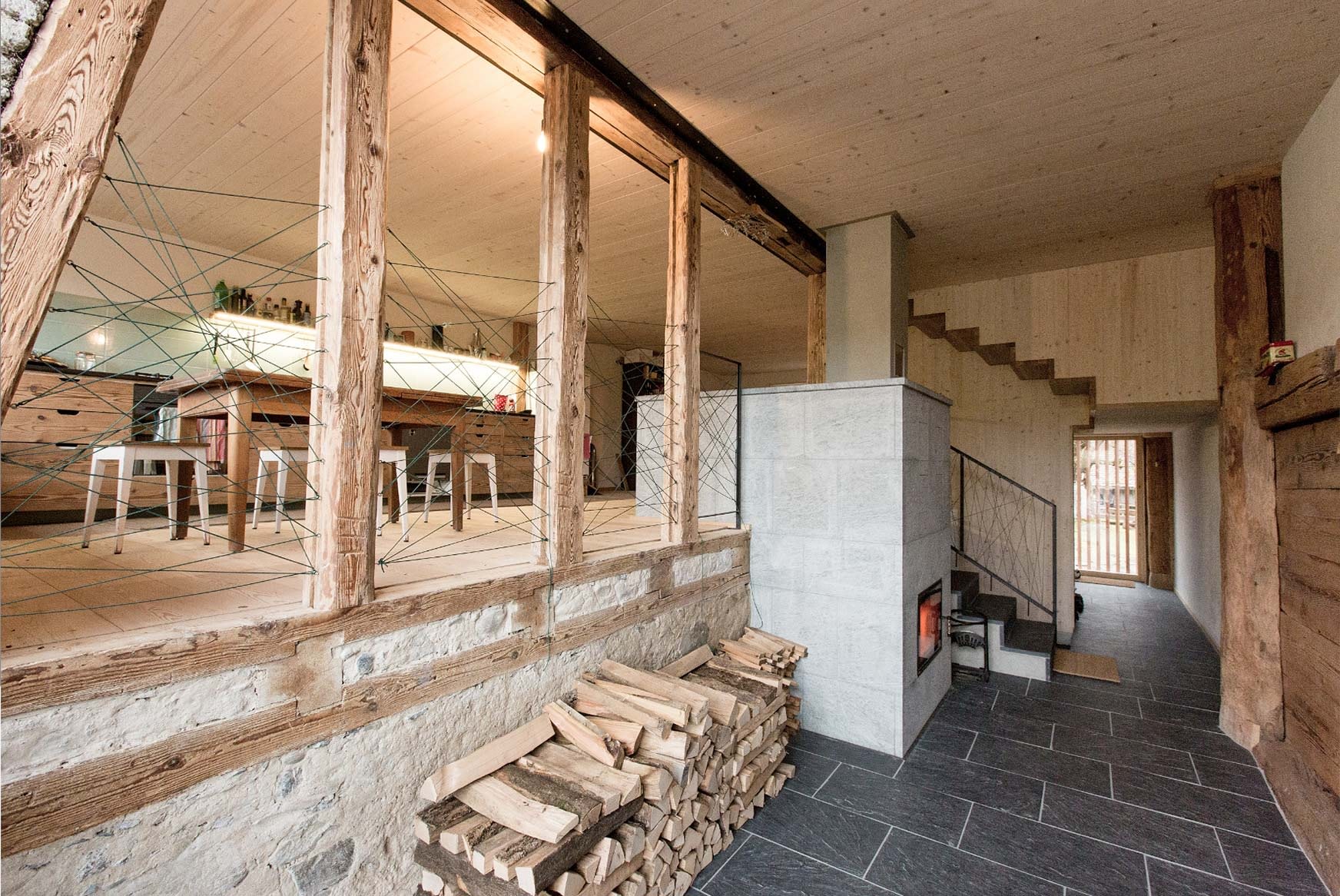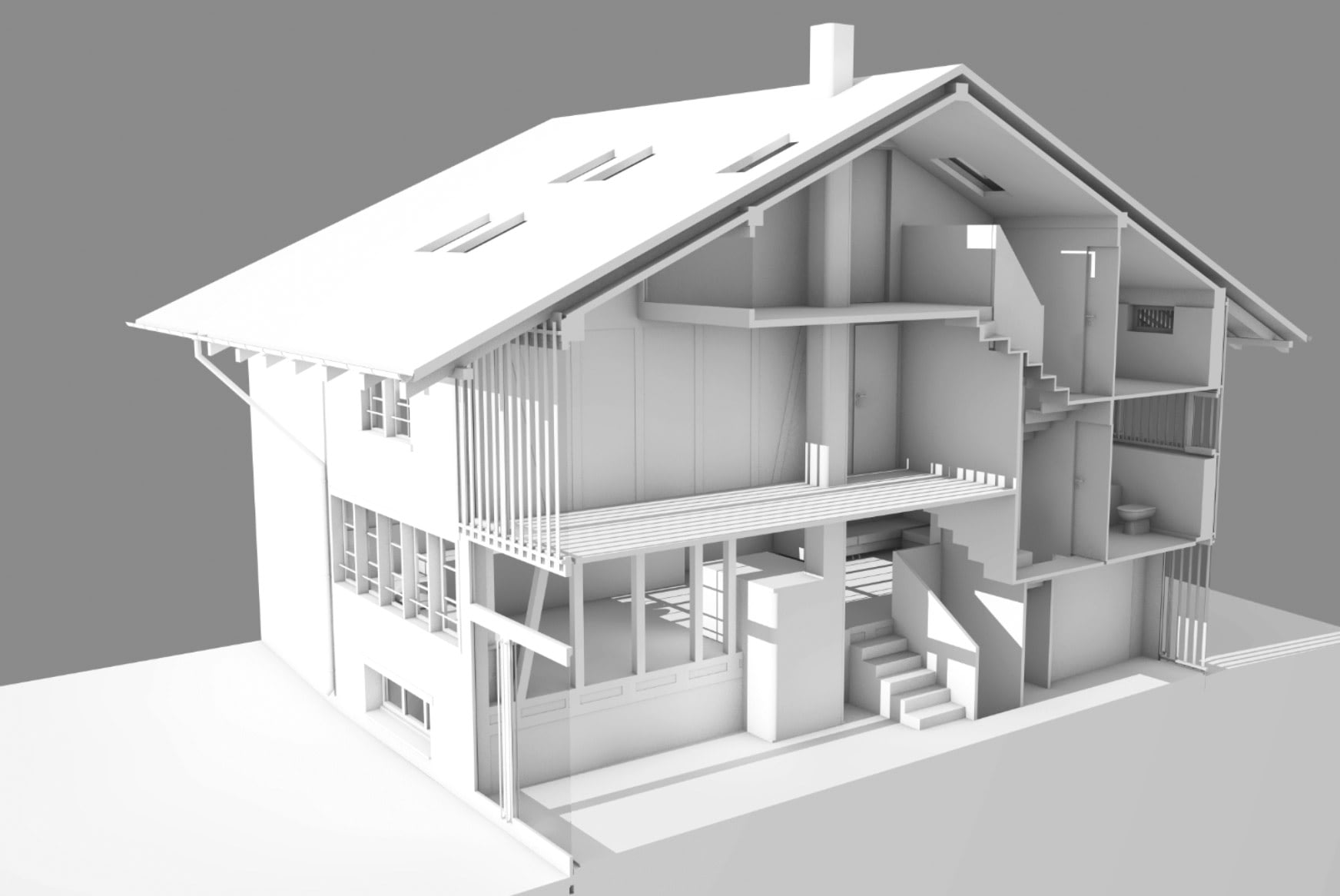Fri 16 Sep
09:50
Oekofacta, Winterthur
Open Dialogue as a Chance for Innovation
Already during the first sit-down meeting with the clients, I refer to values, their needs and their idea of quality of life. It’s important to me, already during the first encounter with those who want to build, to excite their emotions for a better world for us, or at least to animate the discussion. Amongst today’s utensils as a practicing architect, it is increasingly crucial to not only present norms and technical expertise but also show an interest in everyday things, for life itself, and to ‘scrutinise’ the whole.
Trust and sympathy are the basis on which the most vital decisions will be jointly made over the coming 12 to 15 months. The first consultations are mostly very lengthy, so that the clients can openly express themselves. Being listened to is important for everyone, but at the moment at which the remit is formulated, it is above all important for the client “to be listened to”. Because to start with the assignments to be divided up and the spatial programme is usually unclear to the client, or vaguely formulated, I already explain the key ideas and arguments, introduce references and show my previous projects.
In addition, it’s also important to me that I always communicate openly, clearly and honestly about what I can and can’t and what I would like to learn and try out. What I’m attracted to as a planner, and what I don’t grasp, need to be equally expressed in order to be transparent. In this way, the client becomes the first important “accomplice”, the most central partner in the building project. Like this we form a team, who navigate the route together, and, if necessary, together also can bend the building rules. Only after that is the feasibility established, rejected or confirmed with the engineers, or for that mater directly with the building workers.
Dialogue and exchange are crucial in the relation of innovation versus norms. In a team and specialist planner’s meeting, ones own responsibility is extremely evident. Like this, collective discussions can lead to unconventional, even better, ideas being accepted or struck out. In this, it is important for me to stress that professional workers enjoy a high standing in society, at least in German-speaking Switzerland. They appreciate it when you are approachable, open and honest, and cultivate flat hierarchies. It’s also sometimes more helpful when getting advice from the public authorities to make a quick call than to write a long, official-sounding email. From my experience, an open dialogue with experienced partners and institutions is more innovative than simply applying standards.

© Saikal Zhunushova, Oekofacta

© Saikal Zhunushova, Oekofacta
Saikal Zhunushova
I spent six years abstractly studying architecture at the state university in Kyrgystan, followed by a couple of years as draughtsperson, model builder and graphic designer in Kyrgystan and neighbouring Kazachstan. I grew up in an intact village. Most of the inhabitants were ethnic-German Russians. The village community was healthy and social, where everyone helped everyone and above all the closest neighbours looked after each other. Each family was self-supporting. We moved around the village only by bike, and the only foreign language at school was German. My mother became a widow at 32, with three small children, and got a post as a schoolteacher. She brought us up as a single parent.
Aged 27 I came to Switzerland to finally complete a practical architectural education at a technical university. I completed my studies in 2012 with a master’s degree and then, with difficulty, acquired my first real professional experience in various Swiss architectural offices, before finally making myself independent in 2017 with my first own modernisation project.